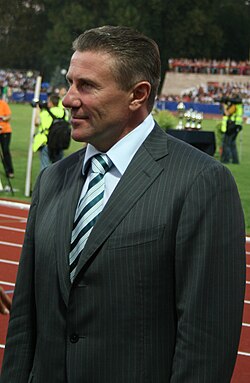
Being dominated by Russia since the 18th century, sports in the bigger portion of Ukraine as the rest of popular culture
in Ukraine has been overshadowed by Russian culture as its regional deviation. As part of Ukrainian culture, sports
began its development in Austria-Hungary and were influenced by various European physical culture movements
such as pan-Germanic Turners, pan-Slavic Sokol movement, and others (such as all-Jewish Maccabiah sports).
In the Russian Empire, the Ukrainian nation was never recognized and was criminally prosecuted, while the
Little-Russian culture was allowed to exist only as folk culture. Only after dissolution of the Soviet Union, in 1992
the Ukrainian anthem first sounded at Olympic Games starting with the Olympic victory of Oleh Kucherenko
and immediately followed by victories of Tetiana Hutsu and Oleksandra Tymoshenko.
Football and wrestling have been popular in Ukraine since the 19th century. Ukraine has benefited from the Soviet
Union's emphasis on physical education, and Ukraine was left with hundreds of stadiums, swimming pools, gymnasiums,
and other athletic facilities after the collapse of the Soviet Union. Ukraine sports or athletic movements were influenced
greatly by the Sokol gymnast organization that was popular in the Central Europe since the second half of the 19th century.
Sport in Ukraine is primarily governed by 40 federations of various Olympic sports that are all part of the National
Olympic Committee of Ukraine (NOC Ukraine), which in its turn is part of the International Olympic Committee (IOC).
The mass sports movement is driven by four main sports societies (i.e. Dynamo Ukraine) and two government sports
committees of the Ministry of Education and the Armed Forces of Ukraine (CSC AF Ukraine), all of which are also collective
members of the National Olympic Committee.
All non-Olympic sports are governed by their respective federations of the Sports Committee of Ukraine.
Ukraine also has a strong paralympic team.